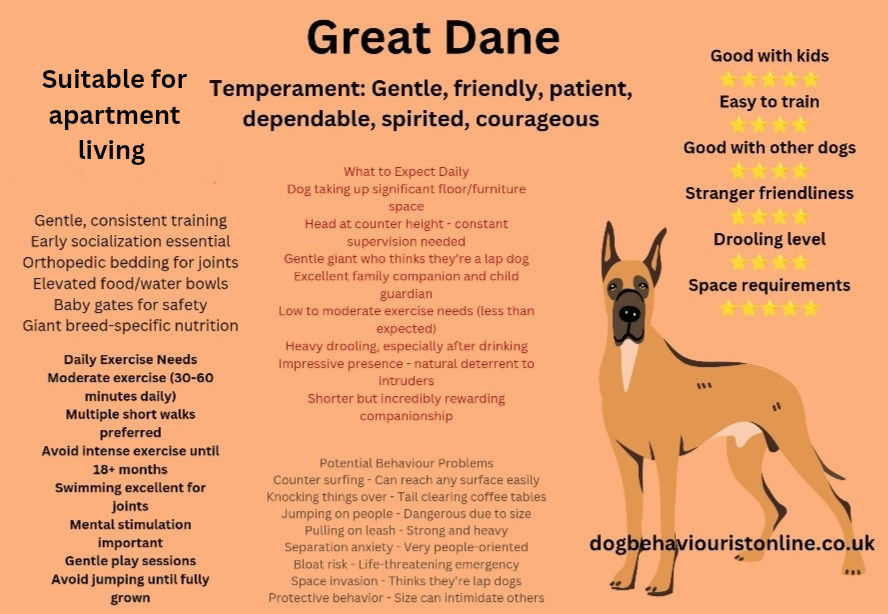The Cane Corso: A Noble Guardian with Unique Needs
- Apr 8, 2025
- 4 min read
Updated: May 1, 2025
The Cane Corso is a majestic, powerful breed that commands attention wherever it goes. With its muscular build, deep-set eyes, and confident stance, this Italian mastiff is more than just a pretty face—it's a loyal, protective companion with a long history of working closely with humans. But despite their impressive presence, Cane Corsos aren't for everyone. They need structure, commitment, and a knowledgeable hand to help them thrive.
If you're considering bringing a Cane Corso into your life—or already share your home with one—this guide will help you better understand what makes this breed tick, what it needs to succeed, and how to avoid common pitfalls.
Cane Corso Personality: Loyal, Protective, and Dignified
At their core, Cane Corsos are intensely loyal and affectionate with their families. They're not the kind of dog that bonds with everyone they meet—instead, they form strong, lasting attachments with those closest to them.
Some of their most notable personality traits include:
Protectiveness: This breed takes its job seriously. Whether guarding the home, watching the kids, or alerting you to a stranger nearby, the Cane Corso is instinctively watchful.
Calm Confidence: Despite their intimidating look, most Cane Corsos are peaceful, quiet, and steady in familiar environments.
High Intelligence: This is an intelligent dog—quick to learn, responsive to training, and constantly aware of its surroundings.
Strong Will: With intelligence comes independence. Cane Corsos can be stubborn without proper training and clear boundaries.
They're not overly clingy but want to be near their people. They can become anxious or frustrated when left alone too often or without purpose. This is not a "leave in the backyard" type of dog—they need inclusion and direction.
Exercise & Mental Stimulation: A Tired Cane Corso is a Happy Cane Corso
Cane Corsos are high-energy, working dogs. Daily exercise is essential for their physical health and for controlling unwanted behaviours.
Physical Needs:
Aim for at least 1 to 2 hours of exercise per day.
Activities like brisk walks, hikes, running, or even tug-of-war help burn off energy.
They also enjoy more advanced physical challenges like agility courses or protection work.
Mental Needs:
Intelligent dogs need stimulation. Without it, boredom can turn into destruction.
Use puzzle toys, scent work, and obedience training to keep their minds sharp.
Short training sessions throughout the day are better than one long session.
When their mental and physical needs are met, Cane Corsos are content and calm and far less likely to develop problem behaviours like digging, chewing, or excessive barking.
Training & Socialization: Start Early, Stay Consistent
Training is not optional with a Cane Corso—it's essential.
This breed is powerful, confident, and naturally protective. Without clear direction and socialization, that protectiveness can easily become over-guarding or reactive.
Start early. Begin training and socialization when you bring your Cane Corso home, ideally during puppyhood.
Use positive reinforcement. Reward-based training builds trust and motivation.
Set clear boundaries. Rules should be consistent and fair—no grey areas.
Expose them to the world. Introduce your dog to various people, environments, sounds, and animals in a controlled, positive way.
With consistent guidance, your Cane Corso will grow into a well-mannered, confident adult who can handle the world without becoming overwhelmed or overprotective.
Grooming & General Care
Cane Corsos may look high-maintenance, but in terms of grooming, they're fairly easygoing.
Coat: Their short, dense coat requires weekly brushing to reduce shedding and keep it looking sharp.
Bathing: Only when needed—generally every few months.
Diet: Feed a balanced, high-protein diet formulated for large, active breeds. Quality matters here, primarily to support their muscles and joints.
Veterinary care: Regular checkups are essential. Cane Corsos are prone to:
Hip and elbow dysplasia
Bloat (gastric torsion)
Heart conditions like dilated cardiomyopathy
Eye issues like entropion
Preventive care, good nutrition, and exercise go a long way in keeping your Corso healthy and mobile into their senior years.
Who Should (and Shouldn't) Own a Cane Corso?
Let's be honest: Cane Corsos are not ideal for every home.
Best suited for:
Experienced dog owners with the time and know-how to train and guide a powerful breed
Active individuals or families who can meet exercise and mental stimulation needs
Homes with secure outdoor space where the dog can move freely and safely
Not recommended for:
First-time dog owners (the learning curve is steep, and mistakes can be costly)
Busy people with little time for training or exercise
Small apartments or homes with no yard unless you're genuinely dedicated to outdoor activity
Potential Behaviour Issues (And How to Prevent Them)
Even the best Cane Corso can develop behaviour problems if their needs are ignored. Some common issues include:
Aggression or over-protectiveness: Often due to poor socialization or unclear boundaries.
Separation anxiety: This breed doesn't like being alone for long.
Destructive chewing or digging: Usually from boredom or excess energy.
Obesity: Exercise is non-negotiable. This dog can't afford to be overweight—it's tough on their joints.
The solution? Prevention. From the start, give your Cane Corso purpose, structure, and plenty of enrichment.
Final Thoughts: A Devoted Dog for the Right Home
The Cane Corso is not just a pet—it's a partner. Loyal, protective, intelligent, and deeply bonded to its family, this breed can be an incredible companion when raised and managed well. But it requires work, knowledge, and a firm yet fair hand.
If you're up for the challenge, the Cane Corso will reward you with unwavering loyalty, respect, and a level of companionship few breeds can match.
Do you need help with training or behaviour issues? I specialize in powerful, working breeds like the Cane Corso and offer tailored programs to help you get the most out of your dog.
Visit training programs page or get in touch—let's help your Cane Corso reach their full potential.




Comments